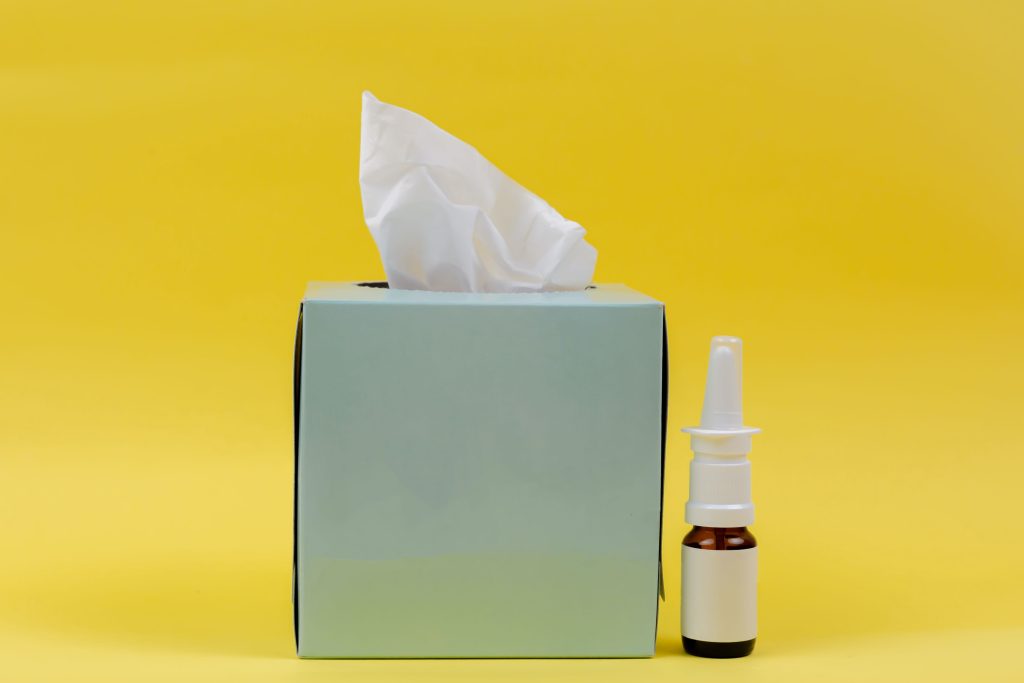Allergy Medicine Is In Short Supply, Here’s How To Find Relief
With allergy medicine in short supply this year, find relief by eating local honey or incorporating foods like apples, grapes, and tea into your daily diet.
This article is more than 2 years old

Ah, springtime. It’s a romantic time of year when the snow starts to melt and flowers begin to bloom—a perfect season for all of us that don’t have to deal with runny noses and itchy eyes and throats every time we step outside. And now that allergy medicine is in short supply, it’s a time of year that some of us over here at Tell Me Best are utterly dreading. Luckily, there are some natural alternatives to allergy medicine that just might do the trick, like honey or even an entire diet focused on allergy relief.
Let’s start with local honey. BCB Honey Farm claims that eating honey for allergies is a natural alternative to using allergy medicine. Not only is it more delicious than over-the-counter stuff, but it also works similarly to allergy shots.
When bees pollinate, they take traces of pollen with them, which stays in the honey. So, by eating local honey, you’re literally building an immunity to the local pollen that causes the allergies in the first place. Once you’ve built enough immunity to it, your seasonal allergy symptoms decrease. Brilliant, right?
To replace your allergy medicine with honey, start by taking one teaspoon of local, unpasteurized honey once a day. You may slowly increase the amount of honey every other day. Do this until you eat one tablespoon of honey per 50 lbs of your weight, which can be taken throughout the day.
What’s even better is that if you are someone lucky enough to come across allergy medicine (despite its short supply), honey can be used in a combo with the over-the-counter stuff to give you extra protection against the allergy-causing pollen.
In addition to honey, Providence advises a number of strategies to use against allergies when allergy medicine is not available. You could try supplements like flaxseed oil, vitamins A, C, and E, and zinc, experiment with alternative medicines like acupuncture, immunotherapy, and hydrotherapy, and use herbal medicines that contain natural antihistamines (under the guidance of a trained professional, of course), or you could try an allergy relief diet.
To substitute an allergy relief diet for allergy medicine, go easy on fatty foods and increase complex carbs as a general eating rule of thumb, washing your meals down with half of your body weight in ounces of water each day. Include richly colored yellow, orange, and green veggies, as well as garlic, ginger, and cayenne. Try avoiding caffeine, alcohol, dairy, red meat, sugar, and wheat.
Research suggests the flavonoid quercetin acts as a natural histamine blocker, so foods high in quercetin, like apples, berries, grapes, and tea, can help ease allergy symptoms.
While these alternatives to allergy medicine may work for some people, remember that every body is different, and you should always consult a healthcare professional before trying anything you haven’t done before.
Allergy medicine may be in short supply, but that doesn’t mean you’re out of luck. Give one of these alternatives a shot, and remember, you don’t have to suffer through springtime allergies.



